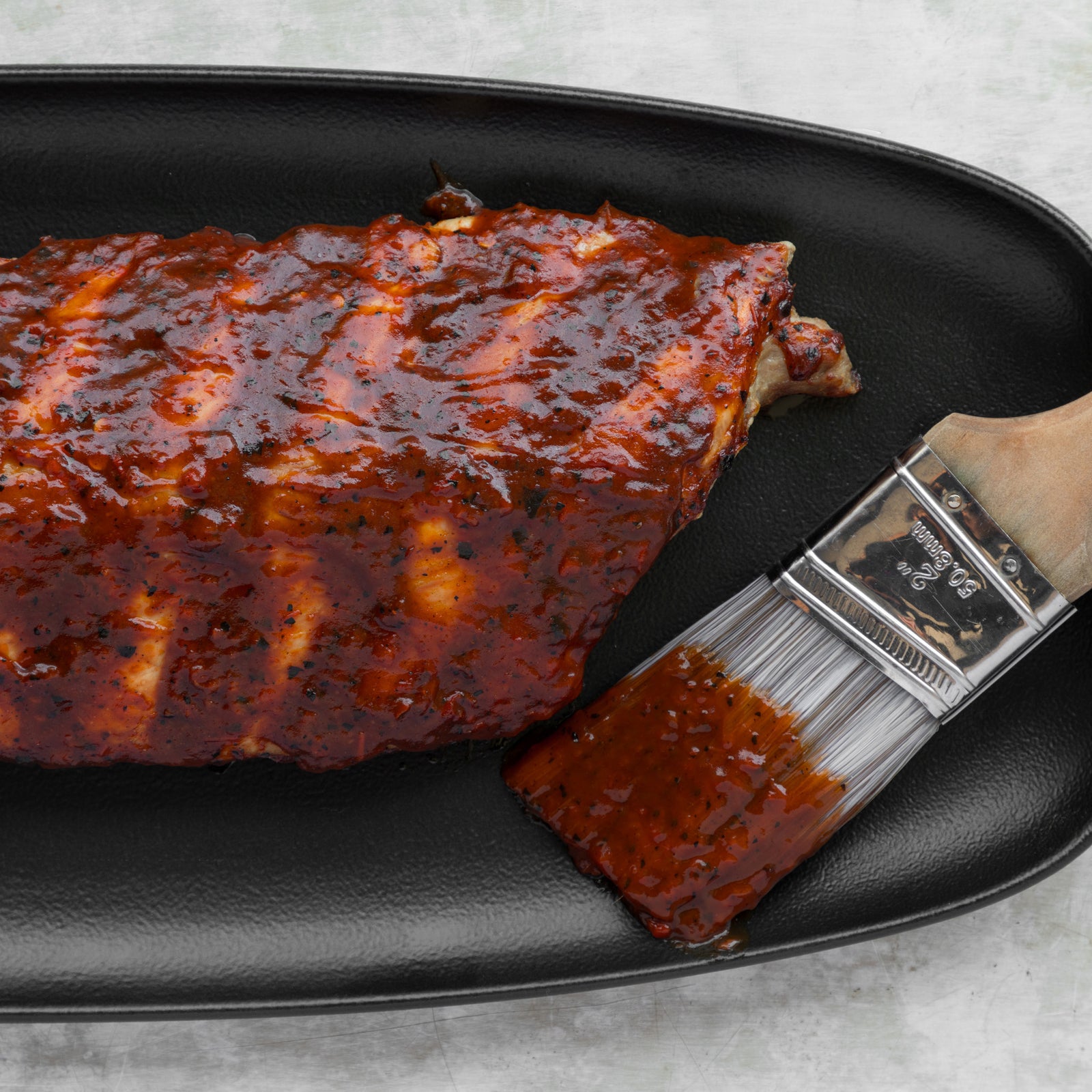If you are looking to enhance the flavor of your meat to grill on the barbecue, dry marinades (commonly called dry rubs) as well as marinades are perfect. Both being equally tasty and simple to make, how do you know which one to choose? Here is a little guide to enlighten you so that you can be crowned grill master this summer!
DRY MARINADE (DRY RUB)
A dry marinade is a mixture of dried herbs, spices, and aromatics that is used to generously rub the meat before grilling to form a kind of crust that will bring it lots of flavors. The possible combinations of ingredients are limitless; just let your imagination run based on your preferences.
These mixes, easy to make at home, enhance the taste of the meat in just a few minutes. For this reason, it can go on the grill shortly after being generously coated with the dry rub. However, letting it soak into the flesh for 30 to 60 minutes will amplify the flavor.
Although a dry marinade can be used on almost all types of meat, it gives more interesting results on cuts that are naturally juicy and do not need tenderizing.
LIQUID MARINADE
It is practically the liquid equivalent of the dry rub: letting the meat rest in a liquid marinade for some time before grilling allows it to be flavored, but it also helps to tenderize it. So if you have a piece that is rather fibrous, we recommend favoring this option.
To succeed in a marinade, you need to combine three essential elements:
- AN ACIDIC LIQUID
The tenderizing element of a marinade is its acidic ingredient. For example, use lemon juice, balsamic vinegar, apple vinegar, wine, etc., mustard, or plain yogurt. - A FATTY BASE
Adding this element to a marinade facilitates the transfer of flavors to the meat, as many aromatic molecules are soluble in fat. For example, add olive oil, vegetable oil, walnut oil, sesame oil, etc., coconut milk, or butter. - AROMATIC ELEMENTS
Incorporate fresh herbs, garlic, soy sauce, fresh ginger, honey, maple syrup, and much more. To maximize the taste, it is best to crush or finely chop the solid ingredients.
Regarding duration, just marinate in an airtight container in the refrigerator long enough to impart flavor: for red meat (beef, lamb, game, etc.), it is recommended to leave it from 3 to 24 hours, while for tender meats (chicken, pork, veal, etc.), it varies from 2 to 8 hours.
For this second category, if the marinade used is mainly composed of oil and aromatics, there is no problem leaving it longer. However, be careful if it is a marinade with very present acidity: the high acid dose could give the meat a sour taste in addition to making it firmer.

